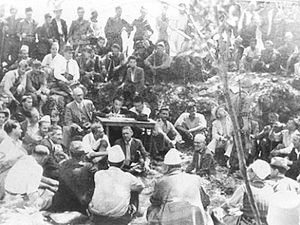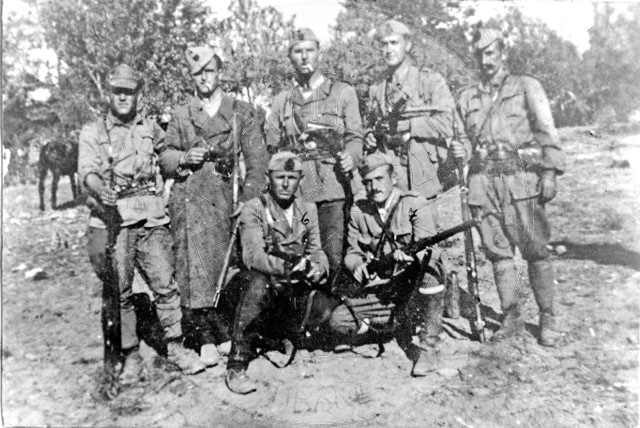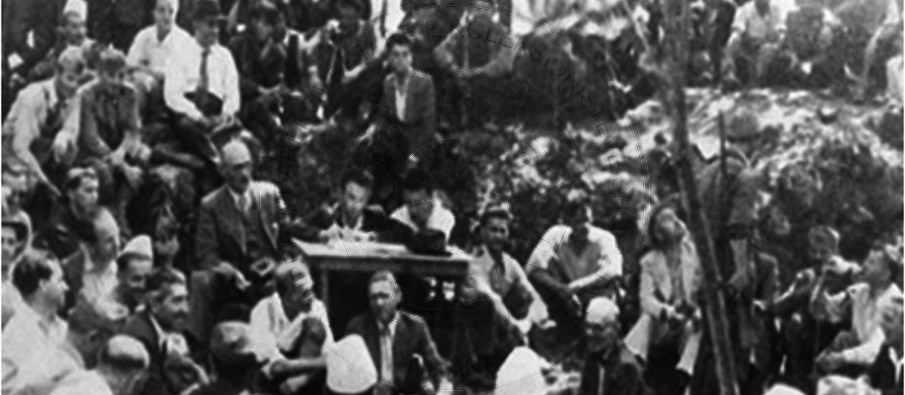On the initiative of a member of the leadership of the National Liberation Front Abaz Kupi, on August 1, 1943, was convened the Mukja Conference. The front was represented by 12 delegates, including Ymer Dishnica, Myslym Peza, Abaz Kupi, Mustafa Gjinishti, Omer Nishani and others. Balli Kombëtar delegation consisted of 12 members, such as Mit’hat Frashëri, Hasan Dosti, Hysni Lepenica, and others. After two days of debate, the common and immediate fight against the invaders alongside the great allies and other anti-fascist peoples was decided. The conference also decided the war for an independent, free, democratic and popular Albania, according to the Atlantic Charter. In the Decisions of the Conference, it was stated that for an ethnic Albanian, the form of the regime will be assigned by the people after the war, that a joint body will be formed consisting of 6 representatives from each party that after the liberation the government and other state organs, will emerge from general elections. Mukje’s agreement was rejected by the Central Committee of the Albanian Communist Party and the National Liberation General Council. Its decisions were also dismissed by the Second National Liberation Conference, while the Plenum of the Central Committee of the Albanian Communist Party held in Helmes of Skrapar in May 1944, for the compromise of Mukje, and excluded Ymer Dishnica.
You may also like
-
8 July 1404, Senate of Venice, decided to conclude the agreement with the Albanian Context, Niketa Topia
-
8 July 1876, for the first time the Albanian issue is reflected in the international plan
-
8 July 1909, Albanian patriotic societies in the US addressed a memorandum to the International Hague Conference
-
8 July 1944, in Upper Cerenec of Dibra, martyred commander of Partizan Battalion “Antonio Gramshi”
-
8 July 1969, were established diplomatic relations with the Republic of Zambia




